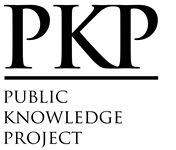- Focus and Scope
- Section Policies
- Peer Review Process
- Publication Frequency
- Open Access Policy
- Archiving
- Index/List/Archive
- Journal Metrics
- Publish a Special Issue
Focus and Scope
The Journal of Social Science Studies (JSSS) is an international, peer-reviewed, open-access journal dedicated to advancing knowledge in the social sciences. It publishes original, interdisciplinary research that advances theoretical, methodological, and empirical understanding of social phenomena and addresses pressing societal challenges.
The journal welcomes contributions across the social sciences, including but not limited to:
- Anthropology
- Archaeology
- Arts
- Communication Studies
- Criminology & Criminal Justice
- Cultural and Ethnic Studies
- Economics
- Education
- Geography
- History
- Law
- Linguistics
- Management
- Philosophy
- Political Science
- Psychology
- Sociology
Interdisciplinary and Policy-Relevant Research
The journal particularly encourages studies that:
- Bridge traditional disciplinary boundaries
- Employ empirical, qualitative, quantitative, or mixed methods
- Inform public policy, social practice, and institutional reform
- Align with the United Nations Sustainable Development Goals (SDGs), especially:
- SDG 4: Quality Education
- SDG 5: Gender Equality
- SDG 10: Reduced Inequalities
- SDG 16: Peace, Justice, and Strong Institutions
We value research that addresses issues of equity, inclusion, sustainability, and social justice in local, national, and global contexts.
All manuscripts undergo rigorous double-blind peer review to ensure academic quality and integrity. The journal adheres to international standards of publication ethics, including those set by the Committee on Publication Ethics (COPE). Submissions must be original, unpublished, and not under consideration elsewhere. Plagiarism, data fabrication, and redundant publication are strictly prohibited.
Section Policies
Articles
Peer Review Process
We use a double-blind system for peer review; both reviewers’ and authors’ identities remain anonymous. The paper will be reviewed by at least three experts: two reviewers from outside and one editor from the journal typically involve in reviewing a submission.
Publication Frequency
Semiannual, published in June and December
Open Access Policy
This journal provides immediate open access to its content on the principle that making research freely available to the public supports a greater global exchange of knowledge.
Archiving
This journal utilizes the LOCKSS system to create a distributed archiving system among participating libraries and permits those libraries to create permanent archives of the journal for purposes of preservation and restoration. More...
Index/List/Archive
- Crossref
- CNKI Scholar
- Electronic Journals Library
- EuroPub
- General Impact Factor
- Google Scholar Citations
- HOLLIS (Harvard Library)
- Infotrieve
- International Impact Factor Services (IIFS)
- J-Gate
- JournalTOCs
- Mendeley
- Open policy finder
- Open Academic Journals Index
- PKP Open Archives Harvester
- Polish Scholarly Bibliography (PBN)
- RePEc
- Road
- Scientific Indexing Services (SIS)
- Scilit
- Technische Informationsbibliothek (TIB)
- The Keepers Registry
Journal Metrics
1. h-index (January 2024): 19
The h-index is an author-level metric that attempts to measure both the productivity and citation impact of the publications of a scientist or scholar.
h-index is the largest number h such that h publications have at least h citations.
The data was calculated based on Google Scholar Citations
2. i10-index (January 2024): 48
i10-index is the number of publications with at least 10 citations.
The data was calculated based on Google Scholar Citations
3. h5-index (January 2024): N/A
h5-index is the h-index for articles published in the last 5 complete years. It is the largest number h such that h articles published in 2018-2022 have at least h citations each.
The data was calculated based on Google Scholar Metrics
4. h5-median (January 2024): N/A
h5-median for a publication is the median number of citations for the articles that make up its h5-index.
The data was calculated based on Google Scholar Metrics
Publish a Special Issue
In order to better serve the needs of the academic community, we welcome collaborations with other institutions to publish special issues. If you are interested in publishing a special issue with our journal, please send your inquiry and proposal to jsss@macrothink.org.
Before embarking on a special issue with our journal, please take note of the following points:
- Special issues should be focused on a specific research topic, conference, or closely related area of research.
- Articles accepted for publication in special issues will undergo the same rigorous review process as regular issues.
- You are welcome to recommend appropriate researchers to act as guest editors and reviewers.
- To ensure timely publication, please discuss your proposal with us at least five months in advance.
- An article processing charge (APC) will be charged for each article.
- We offer a free e-journal in PDF format if required.
We are committed to facilitating the dissemination of high-quality research and knowledge through special issues. We look forward to working with you to bring your research to a wider audience. Please do not hesitate to contact us if you have any queries or concerns.
